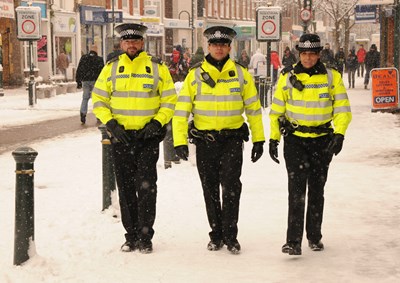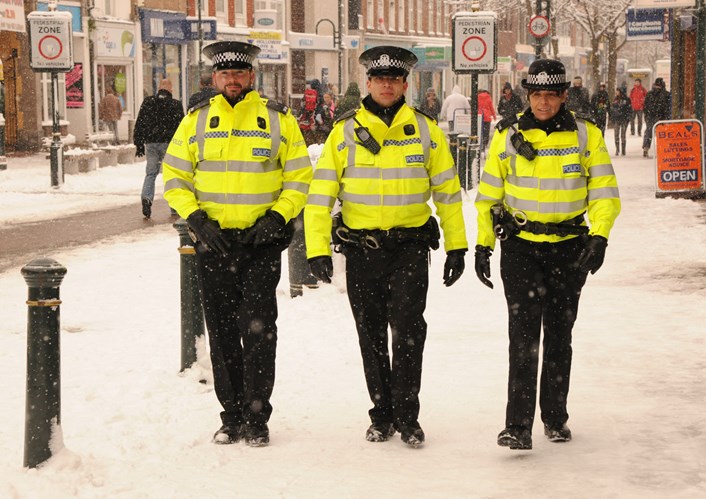23 Dec 2015
Sara Thornton Blog: Christmas Greeting - December 2015
National Police Chiefs' Council Chair, Sara Thornton, has written a blog reflecting on the NPCC's first year and the challenges and opportunities facing the police service in the year ahead.

As the end of 2015 draws near, I have been reflecting on a busy first year for the National Police Chiefs’ Council. We have worked together to develop our response to terrorism and serious crime, police funding, workforce structures, technology and future vision. We remain absolutely committed to reform and are all relieved that we find ourselves in a better financial position than we feared we’d be in a month ago. There is now a great opportunity to maintain the policing service that the public want and also to develop new capabilities to tackle new challenges.
We established the NPCC in April and we are now working as a small independent unit, hosted by the Met, and supported and funded by all chief constables and Police and Crime Commissioners under a legal agreement with strong governance and oversight. When I became the first Chair, I made it clear that our attention would be on coordination and collaboration. As the Home Secretary said in December, the NPCC is now a key “operationally focused” part of the policing landscape. I am particularly pleased about the way that chiefs are beginning to work with Police and Crime Commissioners at the national level and that our first joint conference was productive and hopefully the first of many.
We also said we’d prioritise the most serious threats to the public. With the terrorist threat level remaining at a high level, the police and security service continue to operate at a heightened state of readiness. We’re currently investigating around 600 active cases, involving hundreds more individuals. On average we’re arresting one person a day. In the first six months of year, 46 people were prevented from travelling to Syria and another 225 are being successfully dissuaded from extremist activity related to Syria.
We expect the service to deal with over 70,000 cases of child sexual abuse by the end of 2015; an increase of 88 per cent on 2012. Many more victims now have the confidence to report sexual abuse against them knowing they will be treated with sensitivity and respect, we will listen to them and take their allegations seriously. Forces have improved their approach to child abuse and nationally coordinated operations working with the National Crime Agency have resulted in arrests of 680 people for viewing indecent images of children and 400 children being safeguarded.
There are challenges and opportunities ahead. We are supporting major inquiries into undercover policing and institutional responses to child sexual abuse in the past, which will require significant resources. We’ll be using Government funding to build the skills, knowledge and capabilities for digital contact, investigation and prosecution. Making sure that specialist capabilities, like armed policing, cyber units or teams tackling serious organised crime, are delivered in the most effective way and provide the best value for money is a priority for me and the NPCC; working with the Police and Crime Commissioners, we’re leading a programme of work to make that happen.
I am confident that we go into 2016 with plans in place to deal with the issues facing policing, and that those plans will make people in the UK safer. Chief constables will continue to come together at Chief Constables’ Council to agree how we can work collaboratively with our colleagues across the criminal justice system a wide range of other partners and organisations. I want the Council to be inclusive, listening to voices from both inside and outside policing to help inform our decisions.
To all my colleagues who are working over Christmas and new year – keep safe. And I hope that everyone in policing is able to spend a few days with friends and family over the holiday period enjoying a hard earned rest.
Contact information
Communications office
By phone: 0800 538 5058
By email: press.office@npcc.police.uk

